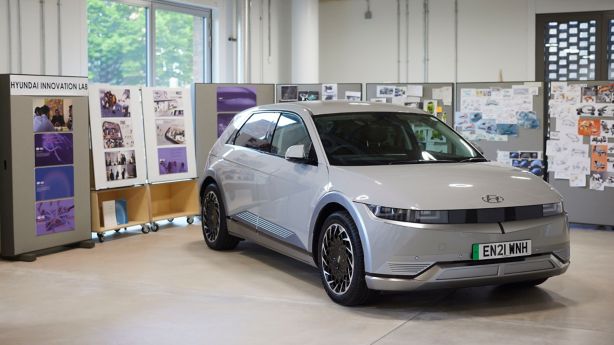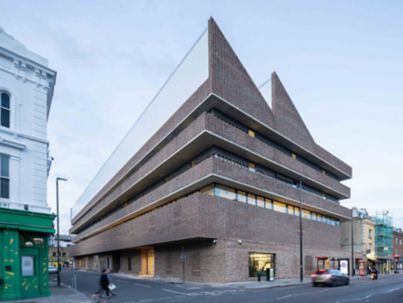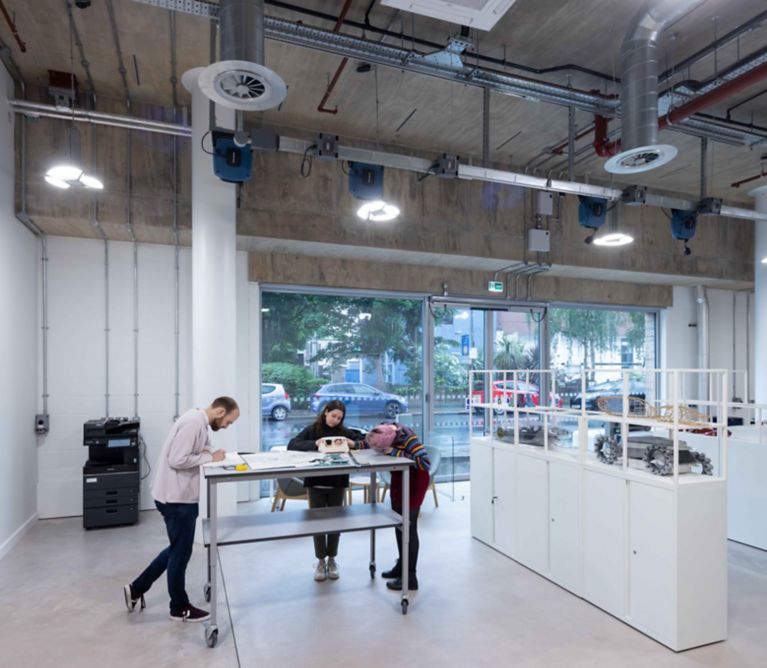- Hyundai Motor Group affiliates to continue supporting the Hyundai-Kia Innovation Laboratory at RCA’s Intelligent Mobility Design Centre
- Laboratory to lead research at the intersection of people, mobility and technology within a complex and changing urban and global environment
- Partnership to support Design and Innovation Project, Visiting Design Fellowship Program, Custom Professional Development Workshops and Student Awards
Press material
-
Download
-
Images
Hyundai Motor Group (the Group) and the Royal College of Art (RCA) today announced that affiliates Hyundai Motor Company and Kia Corporation are renewing their partnership with the RCA in support of the Hyundai-Kia Innovation Laboratory at the RCA’s Intelligent Mobility Design Centre (IMDC).
Recognized as a global centre of excellence in automotive and design education, IMDC is the home of RCA’s Intelligent Mobility MA program and leads research at the intersection of people, mobility and technology within a complex and changing urban and global environment.
In 2016, Hyundai Motor UK Ltd and Kia UK Ltd made a donation to establish the Hyundai-Kia Innovation Laboratory. This was the first industry-funded research lab launched at IMDC. The Group and its Hyundai, Kia and Genesis brands partnered with IMDC to foster the creative exploration of the future of mobility. In the laboratory, the team collaborates on research projects that conceive and explore new areas in mobility systems, vehicle design, digital technology integration and transport experiences.


Left: Battersea Campus Right: The Hyundai-Kia Innovation Laboratory
RCA will host a signing ceremony for the partnership renewal this evening at its Battersea campus, which will be attended by alumnus Peter Schreyer, Executive Design Advisor along with company representatives from Korea. RCA has a long-standing relationship with Schreyer, who earned a Master of Vehicle Design at RCA in 1980. Schreyer received an Honorary Doctorate from RCA in 2006 and serves on the RCA Alumni Council.
The renewed partnership will support four key areas, including the Hyundai-Kia Design and Innovation Project, Intelligent Mobility MA Visiting Design Fellowship Program, Custom Professional Development Workshops and The Hyundai-Kia Student Awards.
As part of the Hyundai-Kia Innovation Laboratory, the interdisciplinary Hyundai-Kia Design and Innovation Project will be conducted with IMDC staff and a selected group of RCA students. The project outline and direction will be mutually agreed by the partners and will be supported by Schreyer in the role of Visiting Professor.
For the Intelligent Mobility MA Visiting Design Fellowship Program, a number of designers from Hyundai, Kia and Genesis will visit the IMDC during the year. Each Visiting Fellow will co-develop a design research project with IMDC colleagues and receive dedicated mentoring support in design and research from the IMDC team.
Four custom professional development workshops will be delivered annually for the fellows and Group staff. These will focus on various subjects, such as IMDC city mobility, new vehicle typologies, and future-facing automotive design issues, such as sustainable design and autonomy.
The annual Hyundai-Kia Student Awards will provide opportunities for the entire RCA student community to refine their understanding of mobility challenges and mobility creativity while developing an understanding of relevant industry propositions.
The Royal College of Art is a place where art and design join together in dialogue, providing an environment for students of all different cultures and backgrounds to inspire each other and work together. Never again in life, can students work as free-spirited and unburdened as here.
The Hyundai-Kia Innovation Laboratory epitomises the kind of collaborative and industry-focused research that we champion here at the RCA. We thank Hyundai Motor Group for their continued support and look forward to writing the next chapter in our partnership.
I am delighted that Hyundai Motor Group have agreed to support the IMDC and the Hyundai Kia Innovation Laboratory with a considerable donation. This will allow us to collaborate on many new research and design initiatives over the period and I would like to thank Professor Peter Schreyer in particular for his continued support to our discipline and education.









